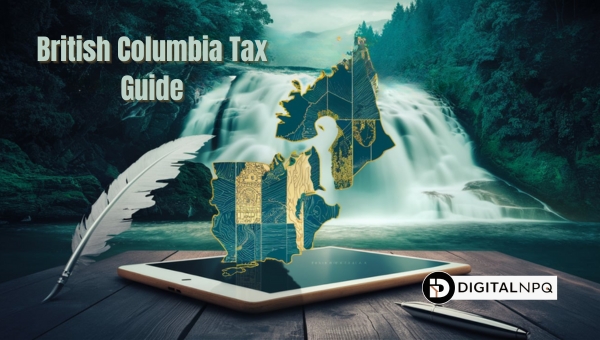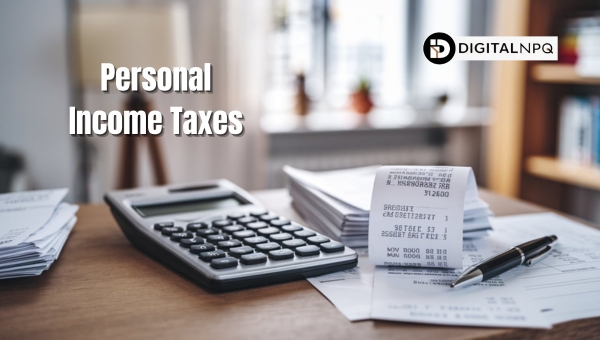British Columbia Tax Hacks: Maximize Your Refund Today!

The world of British Columbia tax can seem overwhelming, but it doesn’t have to be. This article will provide you with a comprehensive overview of everything related to the British Columbia tax. From personal income taxes and corporate taxes to sales and property taxes, we’ve got you covered.
We’ll delve into the various tax rates, credits, and deductions available to residents and businesses in BC. Additionally, we’ll explore environmental taxes and specialized taxes that may affect you. By the end, you’ll have a clear understanding of the tax landscape in British Columbia, empowering you to make informed financial decisions. Let’s dive in!
A Closer Look at British Columbia Tax
British Columbia (BC) has a comprehensive tax system that encompasses various types of taxes. These include personal income taxes, corporate and business taxes, sales and property taxes, environmental taxes, and specialized taxes. Personal income taxes are progressive, with rates increasing based on income levels.

Businesses face corporate income tax rates, along with additional tax measures tailored to specific industries. The province also levies a Provincial Sales Tax (PST) and a property transfer tax for real estate transactions.
Environmental taxes, such as the carbon tax, aim to reduce greenhouse gas emissions, and specialized taxes like the employer health tax target specific sectors. This multifaceted tax structure ensures a balanced approach to revenue generation and public service funding.
Personal Income Taxes
Understanding personal income taxes in British Columbia is vital for residents. Below, you will find detailed information on income tax rates and the various tax credits and deductions available to individuals.

Income Tax Rates
British Columbia has a tiered system for personal income tax rates. The rates increase as your income rises. Here are the current rates:
- Up to $47,937: 5.06%
- $47,937 to $95,875: 7.70%
- $95,875 to $110,076: 10.50%
- $110,076 to $133,664: 12.29%
- $133,664 to $181,232: 14.70%
- $181,232 to $252,752: 16.80%
- Over $252,752: 20.50%
Personal Tax Credits and Deductions
Residents of British Columbia can benefit from various tax credits and deductions. These help reduce the amount of tax owed and can provide significant savings. Some of the available credits and deductions include:
- BC Family Benefit
- BC Climate Action Tax Credit
- Disability Tax Credits
- Sales Tax Credits
- Child Support Tax Credits
These credits are adjusted annually to reflect changes in policy and inflation, making them a crucial aspect of financial planning for residents.
Also Read: EITC Refund Date 2024: Maximize Your Tax Refund
Corporate and Business Taxes
Navigating corporate and business taxes in British Columbia can be complex, but it’s essential for successful operations. In this section, we’ll cover the corporate income tax rates and other vital business tax measures that could impact your company. Let’s dive in!

Corporate Income Tax Rates
British Columbia imposes specific corporate income tax rates based on the type of business and income level.
Here’s a breakdown of the current rates:
- General corporate income: 12%
- Small business income (up to $500,000): 2%
- Manufacturing and processing income: 12%
- Credit unions: 11.5%
- Banks and life insurers (on taxable income over $100 million): 1.5%
Other Business Tax Measures
In addition to corporate income tax rates, there are other business tax measures in British Columbia designed to support various industries and activities.
These include:
- Training tax credit for employers: Extended until the end of 2027 to encourage workforce development.
- Shipbuilding and ship repair industry tax credit: Available until the end of 2026 to support local maritime industries.
- Exclusion of animation productions from regional and distant location tax credits: Effective since June 1, 2024, to bolster the creative sector.
Understanding these tax measures can help businesses optimize their financial planning and take advantage of available incentives.
Sales and Property Taxes
British Columbia’s tax system includes various taxes related to sales and property. This section breaks down the provincial sales tax structure, property transfer tax, and speculation and vacancy tax, providing a clear understanding of how they impact residents and businesses.
Provincial Sales Tax (PST)
The Provincial Sales Tax (PST) in British Columbia is a retail sales tax applied to most goods and some services.
Here are the key points:
- Current Rate: 7%
- Applicable items: Most goods and some services
- Exemptions:
- Unprocessed food
- Children’s Clothing
- Goods purchased for resale or export
Property Transfer Tax
The Property Transfer Tax is levied on the transfer of real estate in British Columbia. This tax is calculated based on the fair market value of the property at the time of transfer:
- First $200,000: 1%
- $200,001 to $2,000,000: 2%
- Over $2,000,000: 3%
- Additional rate: 2% on the portion of the property’s value above $3,000,000
Speculation and Vacancy Tax
The Speculation and Vacancy Tax aims to tackle housing affordability by targeting vacant residential properties in urban areas. Key details include:
- Purpose: Encourage property owners to rent out vacant homes
- Tax Rate:
- 0.5% of assessed value for residents of Canada (excluding BC residents)
- 2% for foreign owners and satellite families
- Impact: Aimed at increasing housing availability and affordability in high-demand areas
Each of these taxes plays a significant role in British Columbia’s effort to manage its economy and address housing issues.
Also Read: COLA Increase 2024: What You Need to Know
Environmental Taxes
Environmental taxes in British Columbia are designed to promote sustainable practices and reduce the environmental impact.
These taxes include measures like the carbon tax and the BC Climate Action Tax Credit, which aim to mitigate greenhouse gas emissions and support residents in offsetting these costs. Let’s delve into these taxes to understand their implementation and benefits.
Carbon Tax
The carbon tax in British Columbia targets the reduction of greenhouse gas emissions by taxing the purchase and use of fossil fuels.
Here are some key points about the carbon tax:
- Purpose: Aim to encourage the reduction of carbon emissions by making fossil fuels more expensive.
- Current Rate: As of now, the tax rate is $50 per tonne of carbon dioxide equivalent emissions.
- Future Increases: The rate is set to increase by $15 per tonne annually until it reaches $170 per tonne by 2030.
- Application: Applies to fuels such as gasoline, diesel, natural gas, and propane.
BC Climate Action Tax Credit
The BC Climate Action Tax Credit is designed to help low- and moderate-income individuals and families offset the cost of the carbon tax.
Here are the key details:
- Eligibility: Available to individuals and families with low to moderate income.
- Payment: The credit is provided as a tax-free quarterly payment.
- Maximum Annual Credit:
- $504 for an adult
- $252 for a spouse or common-law partner
- $126 per child
- Objective: Aim to mitigate the financial impact of the carbon tax on households.
These environmental taxes play a crucial role in British Columbia’s strategy to foster a cleaner and greener environment while supporting its residents.
Specialized and Other Taxes
Specialized and other taxes in British Columbia cover various areas that are crucial for both individuals and businesses. Two key types of taxes include the Employer Health Tax and the Insurance Premium Tax. Below, we delve into each of these taxes, explaining their purpose and how they are applied.
Employer Health Tax
The Employer Health Tax is a payroll tax that businesses in British Columbia must pay based on their total payroll. This tax is designed to fund the healthcare system and is crucial for employers to understand.
- Who Must Pay: Employers with a payroll exceeding a certain threshold are required to pay this tax.
- Calculation: The tax rate ranges from 0.98% to 1.95%, depending on the size of the employer’s total payroll.
- Exemptions: Smaller businesses with payrolls below the threshold may be exempt from this tax.
Insurance Premium Tax
The Insurance Premium Tax applies to specific types of insurance policies in British Columbia. This tax ensures that funds are available for regulatory and administrative costs related to insurance.
- Applicable Policies: This tax is imposed on property, casualty, and life insurance policies.
- Tax Rate: The tax rate is 4.4% of the insurance premiums paid by policyholders.
- Collection: Insurance companies are responsible for collecting this tax from their clients and remitting it to the government.
By understanding these specialized taxes, businesses and individuals can better navigate the financial landscape of British Columbia.
FAQs
What are GST and PST in BC?
In British Columbia, GST (Goods and Services Tax) is a federal tax of 5% on most goods and services. PST (Provincial Sales Tax) is a separate provincial tax of 7%, applied to goods and some services.
What is the luxury tax in BC?
The luxury tax in British Columbia applies to high-value items such as vehicles, boats, and aircraft. It’s levied at rates ranging from 15% to 20%, depending on the item’s price.
Which province in Canada has the highest taxes?
Quebec generally has the highest overall tax rates in Canada, including both personal and corporate income taxes. British Columbia’s tax rates are comparatively lower.
Conclusion
Understanding the British Columbia tax is crucial for both individuals and businesses. From personal income taxes to corporate and environmental taxes, each category has specific rates and credits designed to provide financial relief and incentives. Staying informed about these taxes helps in planning and ensuring compliance with provincial regulations. It’s important to note that tax laws can change, so regular updates are essential.
For more insightful articles like this, be sure to explore other blog posts on our site. Stay informed and empowered with our comprehensive guides!
